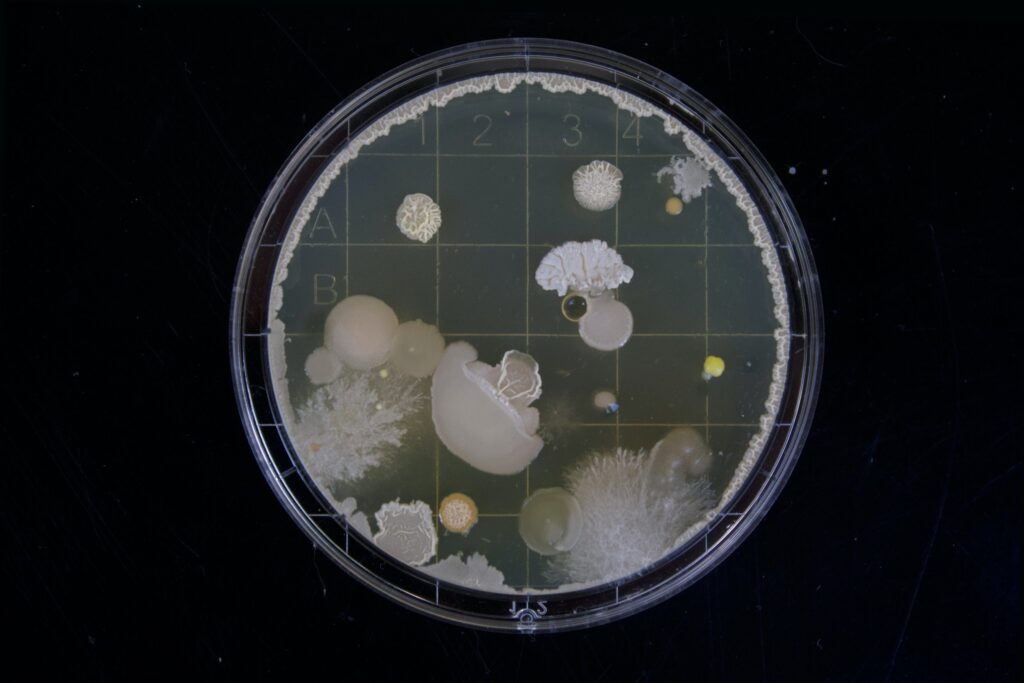Hormesis is defined as a phenomenon in which a harmful substance gives stimulating and beneficial effects to living organisms when the quantity of the harmful substance is small (Sakai, 2006).

Highlights
- Hormesis is a phenomenon that is described to be beneficial or has a stimulatory effect caused by exposure to low doses of an agent that tends to be toxic at high levels,
- Hormesis activates in the cells as a result of phytonutrients found in food and botanicals,
- There are a number of ways to strategically stress your body that include short, intermittent bursts of certain stressors that trigger cellular processes that enhance overall health.
What is Hormesis?
Hormesis is a dose-response phenomenon, characterized by a low-dose response that is opposite in effect to that seen at high doses. Hormetic type responses have been reported in the literature since the late-nineteenth century.
However, the term ‘hormesis’ was first used in the 1940s by Southman and Erlich to describe modest stimulatory effects of extracts from western red-cedar heartwood on cultured fungi that were strongly inhibited by high concentrations of the same extract.
Since its discovery, hormesis has been defined in various ways, which has undoubtedly contributed to confusion regarding the basic nature of the phenomenon.
In the past few years, an extensive literature has developed in the area of hormesis, and hormetic type responses have been reported in widely diverse fields of study, including aging, agriculture, carcinogenesis, exercise physiology, immunology, medicine, molecular biology, microbiology, nutrition, pharmacology, radiation biology, and toxicology.
Examples of Hormesis
The principle of hormesis has been used successfully in vaccination and allergy medicine. Hormesis is a phenomenon when a small dose of a harmful substance is actually beneficial for the organism, acting as medicine.
It is the result of exposure to a small dose of a substance that, over time, makes one immune to additional, larger quantities of it.
A little bit of an otherwise offending substance, not too much, acts to benefit the organism and make it better overall as it triggers some overreaction, leading to a more resilient and less fragile system.
Hormesis has been defined as an adaptive response of cells and/or organisms to a moderate, usually intermittent stress, and the agents which bring about the process of hormesis are called hormetins.
Hormetins have been broadly classified into physical, psychological, and biological/nutritional. Physical factors such as moderate exercise, irradiation, thermal shock, and cold stress are grouped under physical hormetins.
Factors that lead to the social and mental well-being of an individual are classified as psychological hormetins. These include mental engagement such as intense brain activity and focused attention such as meditation.
In molecular pharmacology, many chemicals are known to have opposite effects as a function of dosage (e.g., the antibiotics penicillin, erythromycin and streptomycin promote bacterial growth at low doses, contrary to effects at higher doses).
It has long been recognized that mild forms of stress can promote mental and physical function whereas extreme stress is more likely to cause mental anguish and physical ailments, the Yerkes-Dodson Law in experimental psychology (Yerkes and Dodson, 1908)
Fasting is another example. When you’re sick, your appetite disappears – your body naturally fasts to get healthy again. A deadline is a self-imposed stressor that helps you instead of hurting you.
Without a deadline, it would be a miracle if you got anything done. Ice baths are another great example.
Tony Robbins’ morning priming routine includes a cold water plunge. This stressor kicks the body into high gear.
Physical Activity[Exerices] And Hormesis

The term Hormesis has been adopted to explain how mild oxidative stress associated with exercise can result in favourable adaptations that protect the body against more severe stresses and disorders derived from physical stress or other etiological origins (Ji et al. 2009).
While some authors have now advocated that “exercise is antioxidant” (Gomez-Cabrera et al. 2008), the American College of Sports Medicine is already carrying the slogan “exercise is medicine.”
As we age, our natural functions decline; We lose muscle mass, lose our sense of balance and lose bone density predisposing us to suffer bone injuries in a fall.
A known benefit of Resistance Training is its ability to increase our Bone Mineral Density and preserve/improve muscle mass. Resistance Training can be harmful if it is overdone (fatigue, injuries, insomnia), but small and consistent doses can be highly beneficial in the long run.
Nutrition/ Diet and Hormesis

We learned as kids that vitamins and minerals are good for the body but these same substances in excess can be potentially harmful. Take the example of Vitamin D, which is produced in the body through sun exposure and available through certain foods.
Vitamin D plays a vital role in various metabolic functions of the body such as calcium absorption which helps make our bones stronger.
If your Vitamin D levels are low, supplementing with the same is important to remain in good health; however, excessively high levels of the same can lead to excessive calcium levels in the blood, calcifying blood vessels, and causing potential kidney problems.
Hormesis activates in the cells as a result of phytonutrients found in food and botanicals. Botanical polyphenols often refer to compounds that the plant uses to protect itself from environmental harm.
The botanicals rich in polyphenols activate the hormetic mechanisms of the body, and consequently, the body begins to produce antioxidants and other protective molecules. Think purple grapes or blueberries.
The pigments found in these colourful plants are rich in polyphenols. The widely researched Mediterranean diet, which includes lots of vegetables, contains plenty of polyphenols and other nutrients.
As a result, the diet has shown a remarkable decrease in the onset of various illnesses, such as memory disorders, depression or cardiovascular diseases.
Green tea, blueberries, olive oil, red wine, citrus fruits, hibiscus tea, soya, dark chocolate, curcumin, lingonberry, and many other spices and herbs are among the most researched ingredients rich with polyphenols and positive health effects
What is Mitohormesis?
Mitohormesis is a term used to define a biological response where the induction of a reduced amount of mitochondrial stress leads to an increment in health and viability within a cell, tissue, or organism.
In response to mild cellular stress, mitochondria generate low levels of ROS, which in turn act as signaling molecules and protect the cells from further damage by initiating an adaptive response (stress defense mechanism).
Mitohormesis is a phenomenal mitochondrial event by which mild stress can actually protect living organisms from detrimental outcomes of subsequent larger stress.
Everything we do in our day-to-day life can be perceived as stress. It can be broken down into Eu-Stress (Beneficial Stress) and Dis-Stress (Adverse Stress). To understand how stress can affect us, we must understand the ‘Stress Bucket’ Concept.

In small doses, however, experts say stress can actually have some positive effects. Moderate levels of daily, manageable stress — also known as ‘eustress’ — may help protect against oxidative damage, which is linked to aging and disease, a 2013 study published in Psychoneuroendocrinology found.
Some unexpected Benefits of Stress are:
- Enhances motivation While heightened stress can feel overwhelming and decrease motivation, a little bit can go a long way when it comes to kickstarting your work
- Can build resilience and encourage growth: Even though stress can feel overwhelming, it also forces people to problem-solve, ultimately building confidence and skills that are important for future experiences, says Peter Vitaliano, professor of psychiatry and behavioural sciences at the School of Medicine at the University of Washington.
- Stress can promote bonding Social connection is one of the most protective factors against physical and mental health problems. When people feel loved and understood by another person, they feel less alone and isolated.
How to reap the Health Benefits of Hormesis
There are a number of ways to strategically stress your body that include short, intermittent bursts of certain stressors that trigger cellular processes that enhance overall health and make you more resilient to future stress (both physical and mental).
Some ways this can be made use of:
- Intermittent fasting and Hormesis Intermittent fasting stabilizes blood sugar levels, increases resistance to stress and suppresses inflammation. It also decreases blood pressure and cholesterol levels and improves resting heart rate. It also improves brain health and memory.
- HIIT Exercise & Hormesis High-Intensity Interval Training involves doing intense exercise in short bursts and taking breaks in between.
- Radical temperature exposure & Hormesis Exposing yourself to very high or very low temperatures for a little while prompts your body to produce “shock proteins.”The proteins produced when you expose yourself to cold temperatures for a short time combat inflammation and bolster the immune system. Because of this, cold exposure therapy is ideal for people facing inflammatory illnesses or muscle pains. The anti-heat proteins make cells age more slowly and combat stress.
- Eating fruits & Hormesis some healthy fruits and vegetables have colours you don’t see in nature because they contain compounds called phytochemicals that are mildly toxic. Human bodies recognize the tiny amount of toxins and respond by bolstering themselves on a cellular level.This lowers the risk of several diseases in the future. Tomatoes, turmeric, carrots, broccoli, dark chocolate, red wine, apples, green tea, and blueberries all contain trace amounts of phytochemicals.
Conclusion
The principle of hormesis can be used to make our bodies and minds more resilient and antifragile towards stresses imposed on them.
If these hormetic substances (such as weight training, nutritional interventions, cold exposure etc) are administered at the right dose with sufficient time for an individual to adapt, they can be utilized as powerful tools to drive longevity and health, prevent disease and drive performance.
Disclaimer : The contents of this article are for general information and educational purposes only. It neither provides any medical advice nor intends to substitute professional medical opinion on the treatment, diagnosis, prevention or alleviation of any disease, disorder or disability. Always consult with your doctor or qualified healthcare professional about your health condition and/or concerns and before undertaking a new health care regimen including making any dietary or lifestyle changes.
References
- Radak, Z., Chung, H.Y., Koltai, E., Taylor, A.W. and Goto, S., 2008. Exercise, oxidative stress and hormesis. Ageing research reviews, 7(1), pp.34-42.
- Marques, F.Z., Markus, M.A. and Morris, B.J., 2010. Hormesis as a pro-healthy aging intervention in human beings?. Dose-Response, 8(1), pp.dose-response.
- Li, X., Yang, T. and Sun, Z., 2019. Hormesis in health and chronic diseases. Trends in Endocrinology & Metabolism, 30(12), pp.944-958.
- Hayes, D.P., 2007. Nutritional hormesis. European journal of clinical nutrition, 61(2), pp.147-159.
- Westcott, W.L., 2012. Resistance training is medicine: effects of strength training on health. Current sports medicine reports, 11(4), pp.209-216.








